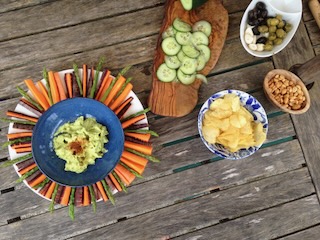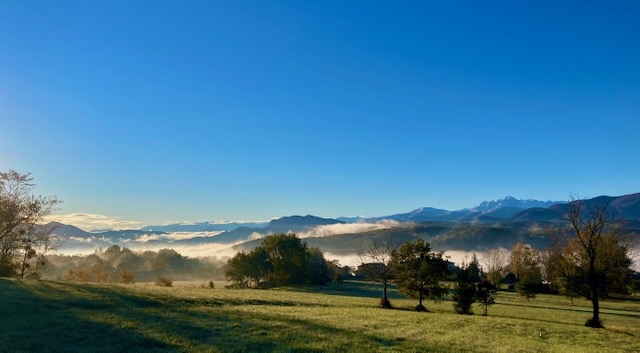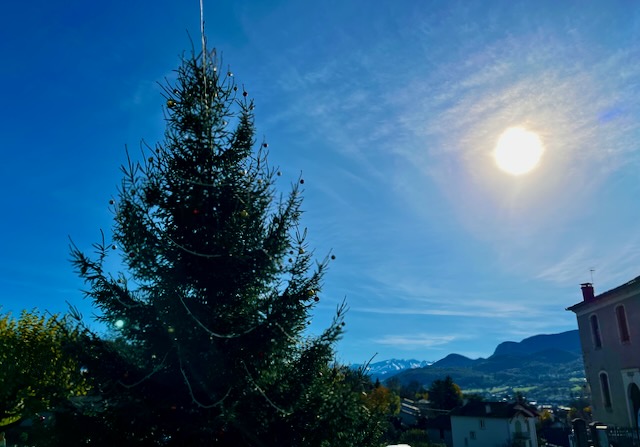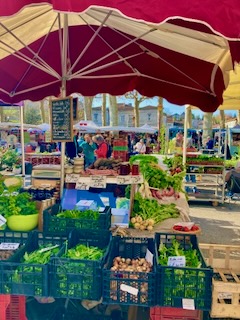View from the Foothills of France Some personal views on living, working,
bringing up family and making the dream happen in the most beautiful region of France. View from the Foothills of France also includes some personal and professional thoughts and tips on finding and buying the perfect property in the Ariège and Haute Garonne regions.
|
By nadia, on 3rd February 2026  
More than a pre-dinner drink, the apéritif, or the apéro as it is more commonly known, is a way of life, at least in this part of France, acting as a social glue, bringing people together and underlining the gentle rhythm of life in France. The apéro is less about what is in the glass and more about who is around the table.
The word apéritif comes from the Latin aperire, meaning ‘to open’ and traditionally it was exactly that: a drink to stimulate the appetite before dinner. Over the centuries, the ritual evolved into a social pause, a time to unwind, catch up, and stop the clock. Today, the apéro is as much about connection and conversation as it is about drinks, woven into daily life, a gentle punctuation mark between work and evening. It is a time when neighbours, colleagues, friends and family pause their day to share a moment together. There is an etiquette (unfortunately unwritten); don’t arrive empty-handed, never rush, and avoid turning the conversation toward work or politics. This is a time to savour presence, not productivity.
For many French families, particularly at the weekends, the apéro begins around 6pm. A great way to draw everyone together from what they are doing to gather around a table or on the terrace for a few olives, nuts, cherry tomatoes, and small slices of saucisson and a drink. Sometimes when friends or neighbours are invited for an apéro, it evolves into a full evening with endless nibbles and the conversation stretching into the night. Many French people still have lunch as their main meal of the day so something to snack on with a drink is all they need in the evening.
The apéro continues to evolve, especially among younger generations. Organic wines, craft beer, low-alcohol drinks, vegetarian platters, and artisanal nibbles are increasingly popular. Yet, at its heart, the ritual remains the same, some shared time to catch up, some gossip and a tradition that justifies downing tools (or laptops and phones) to relax and enjoy each other’s company. Some restaurants and cafés have also embraced this trend, offering planchettes which are boards of charcuterie, cheeses, and bread meant to be shared and enjoyed with friends and family and a glass of something.
Ultimately, the apéro captures something deeply French, the art of living well in the present and prioritising life over work. It reminds us to slow down, to gather with others, and to celebrate small pleasures, a perfect symbol of France’s joie de vivre inviting us to savour life, to connect, and to find joy in the everyday.
If you would like to find out more about buying a house in France or need help with your property search, please get in touch: nadia@foothillsoffrance.com
Like this:Like Loading...
By nadia, on 5th January 2026 
As a new year begins, it is the perfect moment to reflect, re-set and perhaps take a step closer to those long-held dreams. For many, that dream involves buying a property in southwest France, either as a holiday home or to move permanently.
This year, in particular, feels like an especially good time to make it happen. Southwest France continues to offer an exceptional quality of life with uncrowded countryside, beautiful landscapes, vibrant villages and towns, good food, great restaurants and a gentler pace of living, combined with culture, sport and easy access. Life here is about balance; time outdoors, local markets, long lunches, good schools, strong communities and a climate that invites you to enjoy all of it year-round.
The principal city of southwest France is Toulouse which is vibrant, cosmopolitan and welcoming with a great vibe. Recently voted the best city by Lonely Planet, Toulouse combines historic charm with a dynamic economy, international links, universities and a thriving cultural scene. Living nearby means enjoying the peace of the countryside while having easy access to a city that feels forward-looking, friendly and full of opportunity. Property in the surrounding region still represents excellent value compared with many other parts of France and Europe, particularly for those seeking space, views and character.
Whether you are looking for a permanent move, a change of lifestyle, or a long-term investment, southwest France continues to stand out as a place where dreams can genuinely take root.
So, as we step into 2026, perhaps this is the year to turn plans into reality. A new home, a new rhythm of life, and a fresh start in one of France’s most beautiful and liveable regions; what better way to begin the year?
If you need help or advice in finding the right property for you, please get in touch: nadia@foothillsoffrance.com
Bonne année 2026
Like this:Like Loading...
By nadia, on 12th December 2025 
One of the loveliest things about Christmas here in the foothills of the Pyrénées is how gently the season arrives. There’s no frantic countdown or overwhelming commercial frenzy, just a slow, steady build-up of lights, flavours, and traditions.
Christmas in rural France leans heavily toward the time-honoured rather than the trendy, with families focusing on moments shared around the table. The signature Christmas meal, Le Réveillon de Noël, remains the centrepiece of the celebration; families gather late on Christmas Eve and often linger well past midnight. The table will be full of Christmas favourites such as oysters, foie gras, smoked salmon, followed by a capon or sometimes duck and concluding with the traditional bûche de Noël, its flavours and decorations reinvented annually by local pâtissiers. Of course, no French feast would be complete without generous splashes of wine and champagne.
Instead of Christmas stockings, children place their shoes by the fireplace on Christmas Eve hoping that Père Noël will fill them with presents. Mistletoe is hung in many homes, but as a charm for good fortune in the year ahead, not necessarily as an invitation for a kiss (so be warned).
Across the foothills, Christmas markets take over village streets throughout December. Their stalls brim not only with local crafts and specialities but also with seasonal aromas: roasted chestnuts, spiced biscuits, and cups of vin chaud.
The celebrations do not end in December; on January 6th, France marks La Fête des Rois, when bakeries compete to create the most beautiful galette des rois, a flaky pastry filled with almond frangipane. Hidden inside each one is a tiny figurine, and whoever discovers it in their slice gets the crown and the title of King or Queen for the day. It’s a tradition kept alive not only in homes but also in classrooms and workplaces.
One of the most magical aspects of living near the Pyrénées is how easily you can step into winter despite the often-balmy temperatures (the Christmas Day aperitif is usually served outside on the sunny terrace). Some years bring deep snow in the mountains; others offer, crisp, blue-sky days perfect for hiking. Either way, a day in the mountains is the perfect way to enjoy time en famille, heading up high for sledging, skiing, a snowy picnic, or simply a moment to breathe in the crisp mountain air in the sunshine beneath a blue winter sky.
If 2026 is the year you are hoping to find a home in this beautiful, unspoiled region of France, why not get in touch to talk through the possibilities.
You can reach me at nadia@foothillsoffrance.com
Wishing you a joyful Christmas and a very happy new year from the foothills of the Pyrénées.
Like this:Like Loading...
By nadia, on 18th November 2025  Are great local markets one of the attractions of buying a house in France? Airbnb have just released the results of a study showing the importance of local food and gastronomy to French holidaymakers when choosing a destination. It turns out that 75% of French people who go on holiday or take a short break in France are influenced by the local gastronomy in their choice of destination.
I suppose we shouldn’t be surprised by this; it is well-known that the French are obsessed with food, but I was interested to see how much it influenced holiday choices. And 75% is huge – 3 out of 4 people effectively said that they put food (and wine) at the top of their list when choosing where to go on holiday. I started wondering if food has any influence on house hunting decisions too.
Interestingly the French seem less drawn to big name chefs or internationally renowned restaurants; most of those surveyed said that it is the local and traditional cuisine which attracts them and the small, family-run bistros and abundant local markets. They are particularly influenced by recommendations of friends and family or word of mouth rather than advertising or social media campaigns. Before they book, the French admit to doing their research and even reserving restaurants and tastings months ahead and most say that they will hunt out local specialities to eat and to bring home to enjoy with family and friends in order to re-live that holiday feeling.
In terms of which French regions came out as favourite in terms of food destinations for the French holidaymaker, the first on the list was Brittany but number two was our own region of Occitanie which doesn’t surprise me as the southwest is known for it’s excellent local produce and farming and the very traditional take on cooking. Cassoulet gets a mention (a speciality of Carcassonne, Castelnaudry and Toulouse, all of which battle for being its place of origin). Then it is confit de canard, foie gras and the local cheeses of the Pyrénées.
Wine tourism is also a big deal for French holidaymakers, and many choose an area where they can visit vineyards and taste the local wine. In fact, the Airbnb map of most popular holiday destinations shows the best-known wine-areas in France also being the most visited regions.
It is often true that our favourite dishes are those from our childhood, enjoyed en famille, cooked by our parents or grandparents and so it makes sense that some of the highest rated cuisine in France is actually those very same home-cooked, comfort dishes and it is these that the French are searching out when on holiday. It is an authentic way of eating and hence an authentic way of travelling too.
I know that personally, we certainly always try to choose the local dishes and specialties when on holiday but I must admit that we haven’t booked many holidays purely on the strength of a destination’s cuisine although maybe now, I might well think about that at the planning stage rather than on arrival somewhere. Certainly, thinking back to past holidays and looking at old photos, many of the best holiday memories are centred around a table and a good meal.
It also makes me remember again how lucky we to live in a region where so many people want to come on holiday for both the food and wine and the landscapes and lifestyle.
If food is important for planning a holiday, it deserves even more consideration when deciding where to buy a house in France. I can certainly recommend our gourmet region as a wonderful place both to come on holiday and to live so, if you are planning a house hunting trip, why not get in touch: nadia@foothillsoffrance.com
Like this:Like Loading...
|
For further information please contact us:
|










You must be logged in to post a comment.